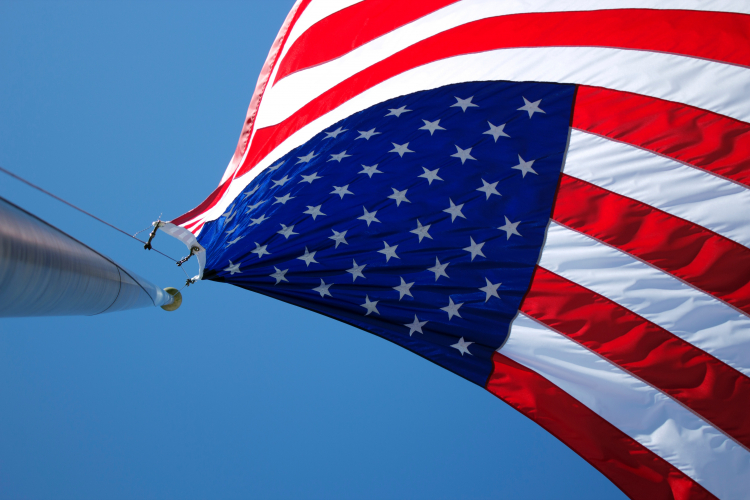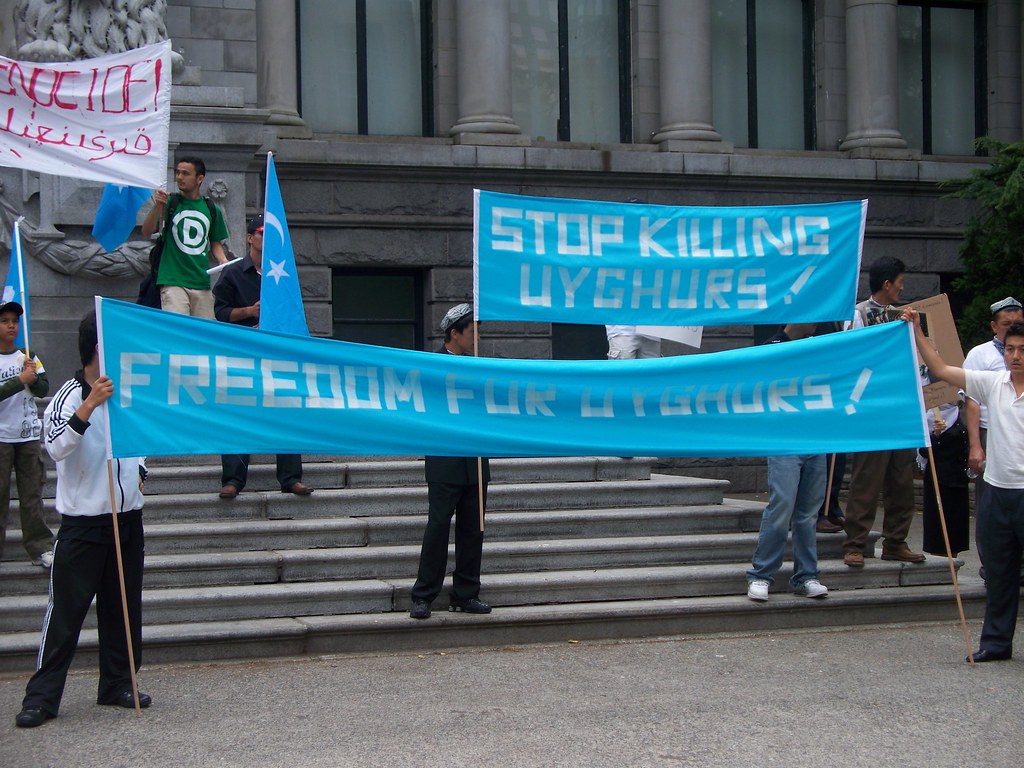For Sale: America

Countries with significant economic power have a much stronger hold over American life than most people realize. Discrepancies in politics, media, and film prove that foreign governments are not interfering with the American way of life, rather, American ideals themselves demand a prioritization of profit and thus undermine true freedom of press and expression.
A recent example of commercial interest silencing America’s politicians emerges with the Xinjiang re-education camps in China. These are internment centers created in response to the Chinese war on terror, and have been in operation since 2017. The US State Department determines up to 2 million Uyghurs and other - primarily Muslim - minorities are imprisoned inside the camps. The purpose of these prisons is to “re-educate,” or indoctrinate, Uyghur Muslims. Although Chinese government officials claim that these camps are boarding schools and members are there voluntarily, detainees are in reality held against their will, without trial or charge. A Uyghur journalist condemned the Chinese campaign against Uyghur Muslims as “cultural genocide,” and recently leaked footage from inside the camps are just one of many pieces of evidence confirming human rights violations inside.
Survivors of the Xinjiang re-education centers have been emerging with horror stories of brutality since 2017, yet few diplomats have publicly criticized the campaign. The New York Times reporter Jane Perlez writes, “as countries weigh their options over Xinjiang, China’s economic heft looms large.” This economic heft, coupled with China’s campaign to suppress the issue in the United Nations, has kept national leaders from outwardly advocating for Uyghur muslims.
A country particularly sensitive to China’s economic stronghold, the United States, has offered virtually no public criticism against this cultural genocide for fear of compromising financial interests in China. President Trump, the quintessential businessman, “has largely ignored the issue, essentially giving China a pass,” presumably because trade deals between the US and China could be under threat. It is hypocritical of America to fanfare their ideals of unalienable human rights while simultaneously turning a blind eye to a mass imprisonment of Uyghur muslims and other minorities in China. While the United States claims to be a beacon for liberty, its politicians will keep quiet to appease economic powerhouses.
Image Credit: Creative Commons/ The Advocacy ProjectPolitics is not the only aspect of American society that is for sale. Media and film are equally affected by financial interest and thus manipulated by censorship overseas. The Film Censorship Law was released in China in 1930, requiring films that “impede good morality or violate public order” to be edited or banned. This law has led to the banning of films with depictions of homosexuality, such as Brokeback Mountain (2005) and Call Me By Your Name (2017). This phenomenon is a concern for filmmakers with big budgets, as films that will not sell to massive populations in China will not make nearly as much money. A fear that films will be banned abroad means that there is a disproportionate lack of LGBT representation in modern American cinema.
The latest Fantastic Beast movie, The Crimes of Grindelwald, is a perfect example of this; although J.K Rowling announced in October 2007 that central character Albus Dumbledore was in love with character Gellert Grindelwald, the 2018 film made only infinitessimally subtle references to a homosexual romance between the two. Forbes magazine recognized Warner Bros’ decision to tiptoe around an openly gay character, pointing out that “when each of your five movies costs approximately $200 million to produce, you must take the entire world into consideration,” as well as the fact that two thirds of most films’ money is made overseas.
This calls into question integrity versus commerciability in art. While significant progress has been made, America is far from a beacon of fair representation when it comes to the LGBT community. However, the audience of Americans not merely being accepting of, but actively searching for, gay representation in film is growing. While the decision to cut LGBT representation is the most profitable, American cinema cannot be an honest reflection of American culture while internationally controversial populations are being erased.
Freedom of the press is jeopardized when examining what is being sacrificed for the sake of profit. The 2019 Time’s Person of the Year was teenage climate activist Greta Thunberg, despite the Hong Kong protestors in China winning over 30% of the votes from Time’s readers in their reader’s poll. Time’s official description of the role of person of the year is, “an individual or group who, for better or worse, had the most influence on the world.” The majority of the 27 million voters for the position believed that this group was the Hong Kong protestors, who have been fighting for greater autonomy from China since March 2019.
Times claimed this discrepancy between voters and the editors who made the final decision appeared because of the increasing violence surrounding the protests, however, their true motivations may in fact be financial. In 2018, Time Magazine was purchased by billionaire software company owner Marc Benioff. His company, SalesForce, recently forged ties with Chinese tech company Alibaba, thus earning their product exclusive enterprise to China, Hong Kong, Macau, and Taiwan. Considering Benioff’s business ties to China, Times’ decision to pass over the Hong Kong protestors for person of the year appears more as a protection of Benioff’s private business ventures than a result of free and unhindered journalism.
Image Credit: Unsplash/ Pop ZebraForeign governments do not need to intervene to compromise American politics, media, or film. America has chosen what it values most - profit. China is not interfering with the American way of life, American society is one that allows itself to be bought by the wealthiest stockholder. Thus, cultural foundations in the United States are a paradox; while Americans are fearful of alien cultures and singularly nationalistic, prioritization of profit allows politics, culture, and society to be manipulated by any foreign economic superpower.









